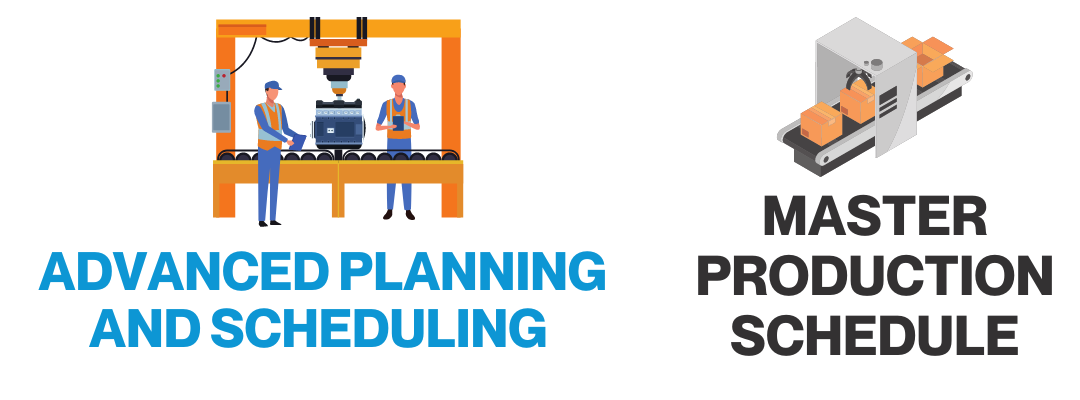What's the Difference?
Advanced Planning and Scheduling (APS) and Master Production Scheduling (MPS) are two key components of the broader field of production planning and control. These concepts play crucial roles in optimizing manufacturing processes and ensuring efficient utilization of resources.

While both Master Production Scheduling (MPS) and Advanced Planning and Scheduling (APS) are related concepts within the field of manufacturing, they are not exactly the same.
Master Production Scheduling (MPS):
MPS is a detailed plan that specifies the production schedule for each finished product over a specific time horizon. It translates the overall production plan into specific quantities of individual end products by considering factors like customer demand, inventory levels, and production capacity.
- Detailed Planning: MPS involves creating a detailed plan for the production of finished goods.
- Focused on Finished Goods: The primary focus of MPS is on determining the quantity and timing of finished goods production.
- Guided by Demand Forecasts: The planning process in MPS is guided by demand forecasts, ensuring alignment with customer requirements.
- Resource and Capacity Consideration: MPS takes into account available resources and production capacity to optimize the production plan.
- Specific Step in Production Planning: MPS is a specific step within the broader production planning process.
Advanced Planning and Scheduling (APS):
APS is a more comprehensive and sophisticated approach to production planning. It involves the use of advanced algorithms and computer-based systems to optimize various aspects of the production process, including scheduling, resource allocation, and demand forecasting.
- Comprehensive Optimization: APS goes beyond individual production steps, aiming to optimize the entire production planning and scheduling process.
- Integration with ERP Systems: Advanced Planning and Scheduling systems often integrate with Enterprise Resource Planning (ERP) systems for seamless data flow and collaboration.
- Advanced Algorithms: APS relies on advanced algorithms to dynamically respond to changes in demand, production constraints, and resource availability.
- Holistic Approach: Advanced Planning and Scheduling takes a holistic approach to enhance the efficiency and effectiveness of the production planning and scheduling process.
- Dynamism and Adaptability: APS systems exhibit dynamic adaptability, responding in real-time to fluctuations in demand, ensuring flexibility and efficient resource allocation.

Master Production Scheduling is a specific step within the production planning process, while Advanced Planning and Scheduling refers to a more comprehensive set of tools and methodologies that aim to improve the efficiency and effectiveness of the entire production planning and scheduling process.
it is clear that Advanced Planning and Scheduling not only complements but surpasses traditional approaches. With APS at the helm, manufacturers can confidently navigate the challenges of the future, ensuring not just the meeting but the surpassing of customer expectations. In the realm of MPS and APS, it is the comprehensive capabilities of the latter that elevate manufacturing into a new era of excellence.
Ready to Transform Your Manufacturing Efficiency?
Discover how PlanetTogether APS can help you optimize production, improve resource utilization, and enhance supply chain coordination. Request a demo today to see the impact of advanced planning and scheduling in action!